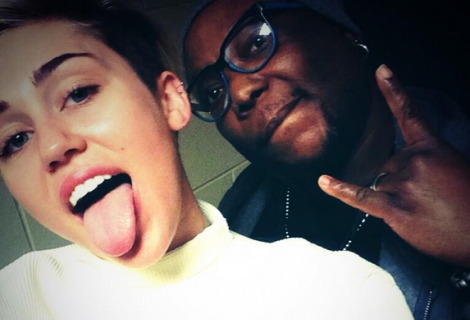#ScienceGrrl Speed Mentoring: Who championed you?
Posted on July 30, 2014
0 people commented on this
 Photo nabbed from Twitter
Photo nabbed from Twitter
It’s been a pretty good year for the selfie: it made it into the Oxford Dictionary and gained illustrious new fans including the President of the United States, the Pope, Tony Blair, Tom Hanks and loads of cats. Oh, and kids attending funerals.
For those unaware of this 21st century social media phenomenon, the selfie is a photograph taken by oneself, arm oustretched. And it's been taking the world by storm.
With global popularity cameth the column inches. Commentators split into two camps: attack and defence. While selfies at funerals (unsurprisingly) garnered near-universal disdain, its less offensive relative, the self-promotion selfie, is liked and loathed in equal measure. Especially after it was announced that the selfie had clawed its way into the Oxford Dictionary’s pages, just about everyone on the internet started talking about the greater meaning of the self-snapshot.
Rachel Simmons, a girls and young women’s leadership expert, wrote a piece that pointed out how girls are taught that confidence will be perceived as arrogance, and they consequently play down their qualities and achievements. The selfie, she argued, is a snapshot of female pride, and a demonstration of control: 'It puts the gaze of the camera squarely in a girl’s hands, and along with it, the power to influence the photo’s interpretation.’
Over at Jezebel, Erin Gloria Ryan responded forcefully that instead of being empowering, selfies are ‘a high tech reflection of the…way society teaches women that their most important quality is their physical attractiveness.’ She thinks the total opposite to Simmons: ‘Young women take selfies because they don't derive their sense of worth from themselves, they rely on others to bestow their self-worth on them — just as they've been taught.’
Danielle Paradis at PolicyMic hummed a different feminist tune, quoting Laurie Penny's Cybersexism, which argued that men are almost never criticised for attention seeking – an accusation oft-levelled at women. For Paradis, it's an act of self-acceptance, in 'defiance' of conventional beauty. People who take selfies are the kind of people who don't normally have photos taken of them by others (with some notable exceptions. Justin Bieber, we're looking at you). 'The most radical act a person who lives on the margins can do', Paradis says, 'is to love themselves, just as they are, at this very moment. What isn't empowering about that?'
Vagenda also gave their two cents, writing a self(ie) defence with a healthy dose of philosophy: ‘I take selfies because – like some hideous Baudrillard mutation of the internet age – I want to know that I exist.’ It may sound a bit I-selfie-therefore-I-am, but she goes on to elaborate with a very What I See sentiment: ‘By offering up my image to strangers…I am trying to elicit something, anything, that will make me feel fixed…Make me understand how I look and what other people see.'
Do selfies, and other people’s reactions to them, help us place ourselves and understand how people see us? Are they just narcissistic acts, or reflections of a society that teaches girls that appearance is paramount? Are they a means of personal branding, fake-living, or do they help us articulate our achievements in a world that encourages women to hide their pride?
You know the drill.
Place: Twitter
Time: Tomorrow, 2pm GMT
Hashtag: #WISPchat
Dress code: Thinking caps encouraged
Comments
0 Comments - Be the first
Comments